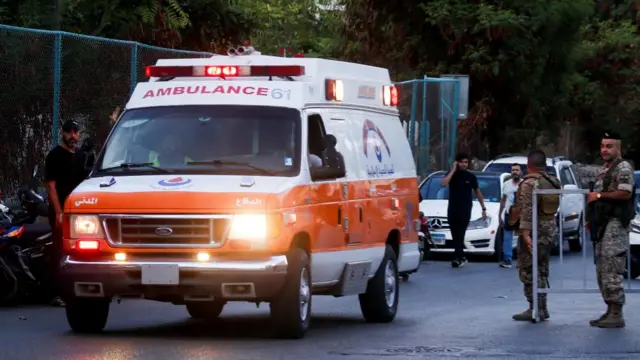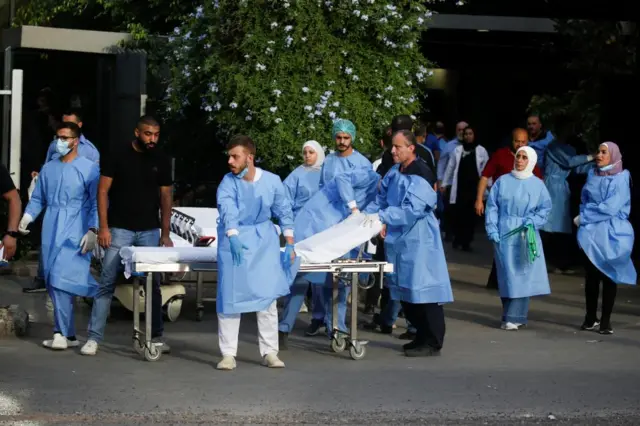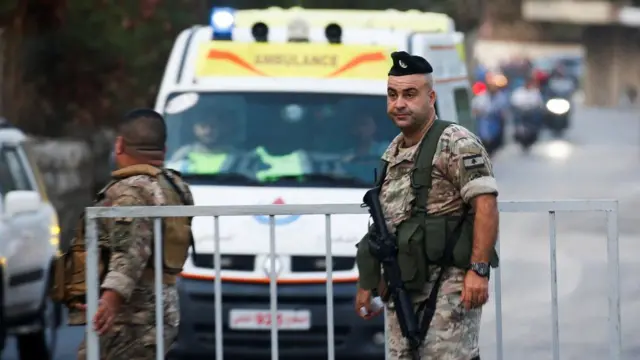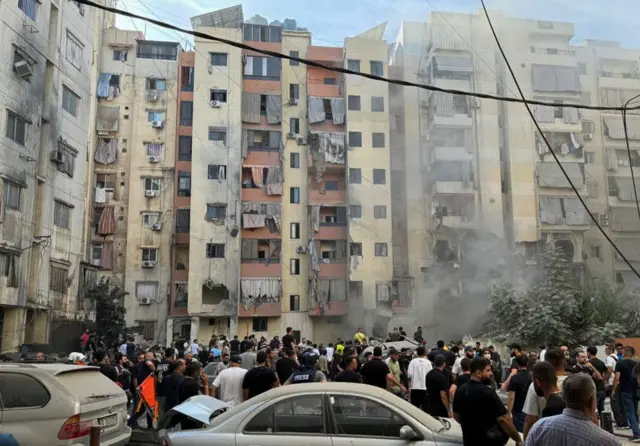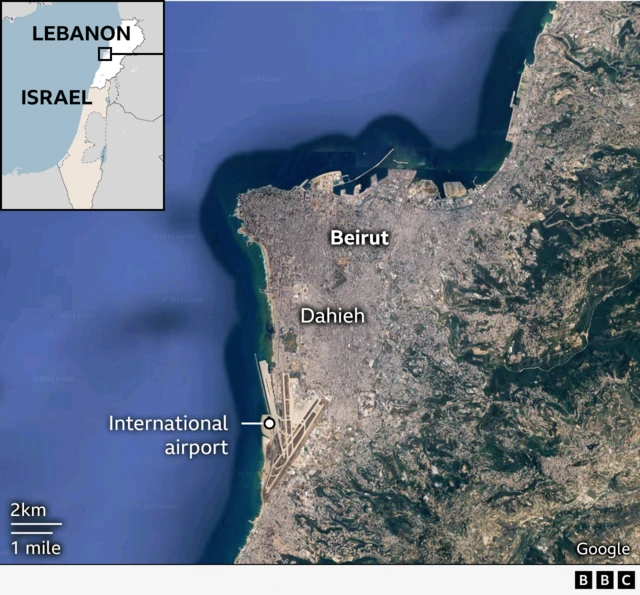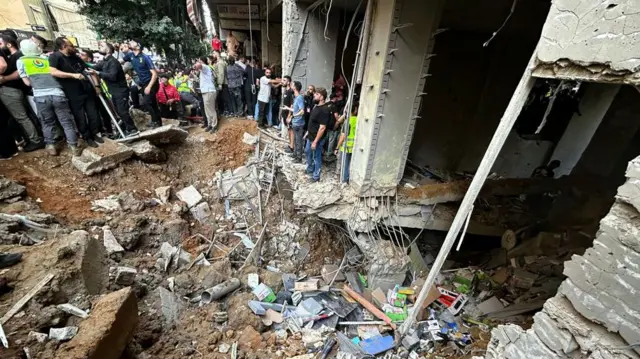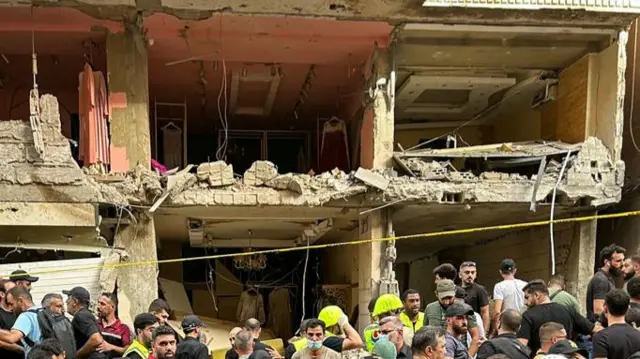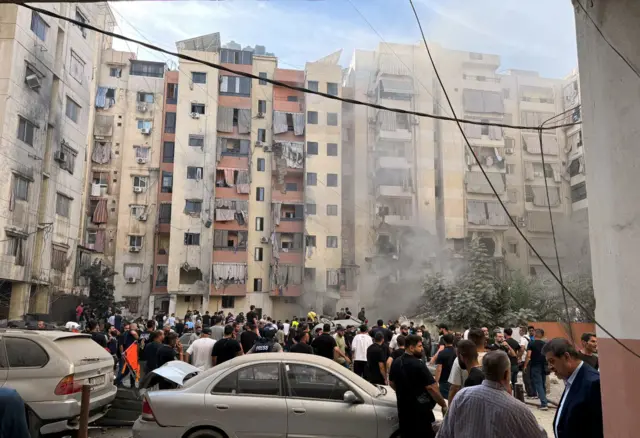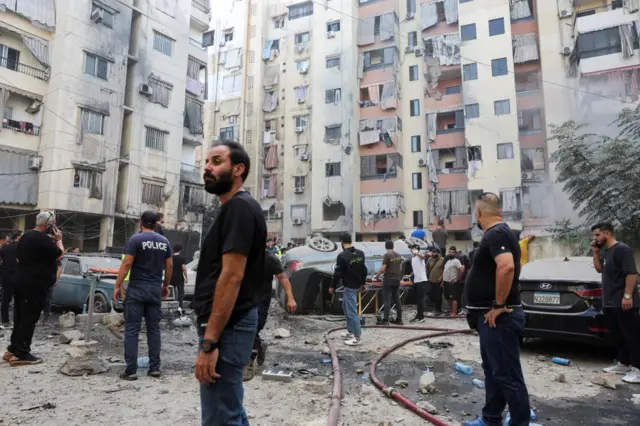Roads in northern Israel closed after Hezbollah rocket attackspublished at 17:28 BST 20 September 2024
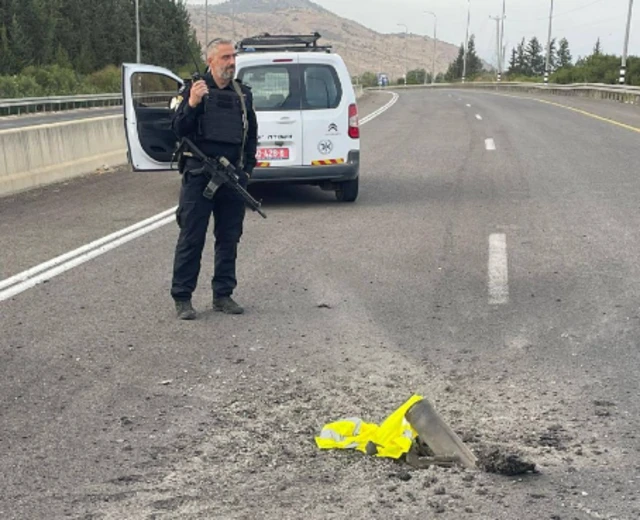 Image source, Israel Police
Image source, Israel PoliceThe Israeli police have issued warnings about damage to roads after Hezbollah fired 140 rockets from the other side of the Lebanese border into the north of the country.
In a post on Telegram, Israel Police says officers and detectives are scanning the area to remove any risk to the public.
The highway between Ayelet HaShahar and Yesud HaMa’ala in the Northern District is currently closed to traffic while the damaged is assessed, it adds.
Officers can be seen removing the debris from fallen rockets buried in the tarmac.
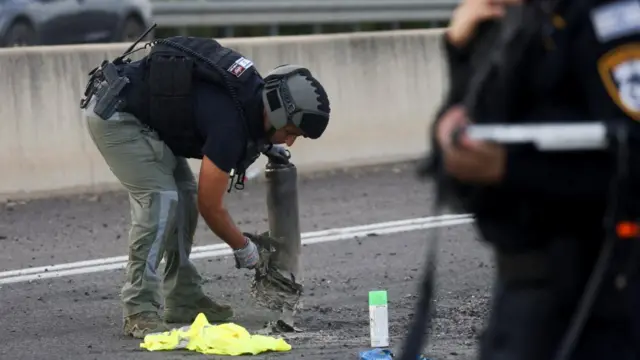 Image source, Reuters
Image source, Reuters